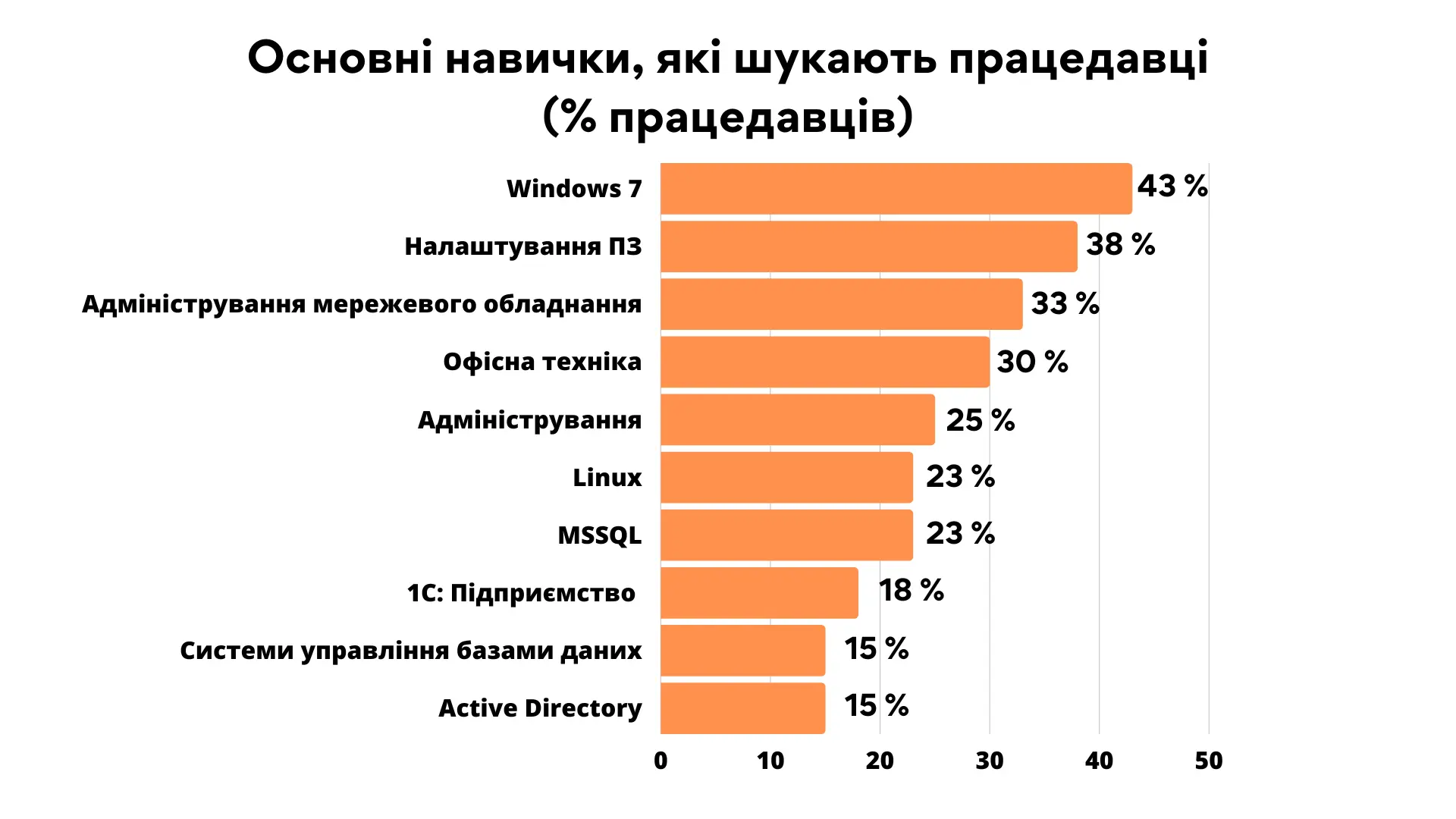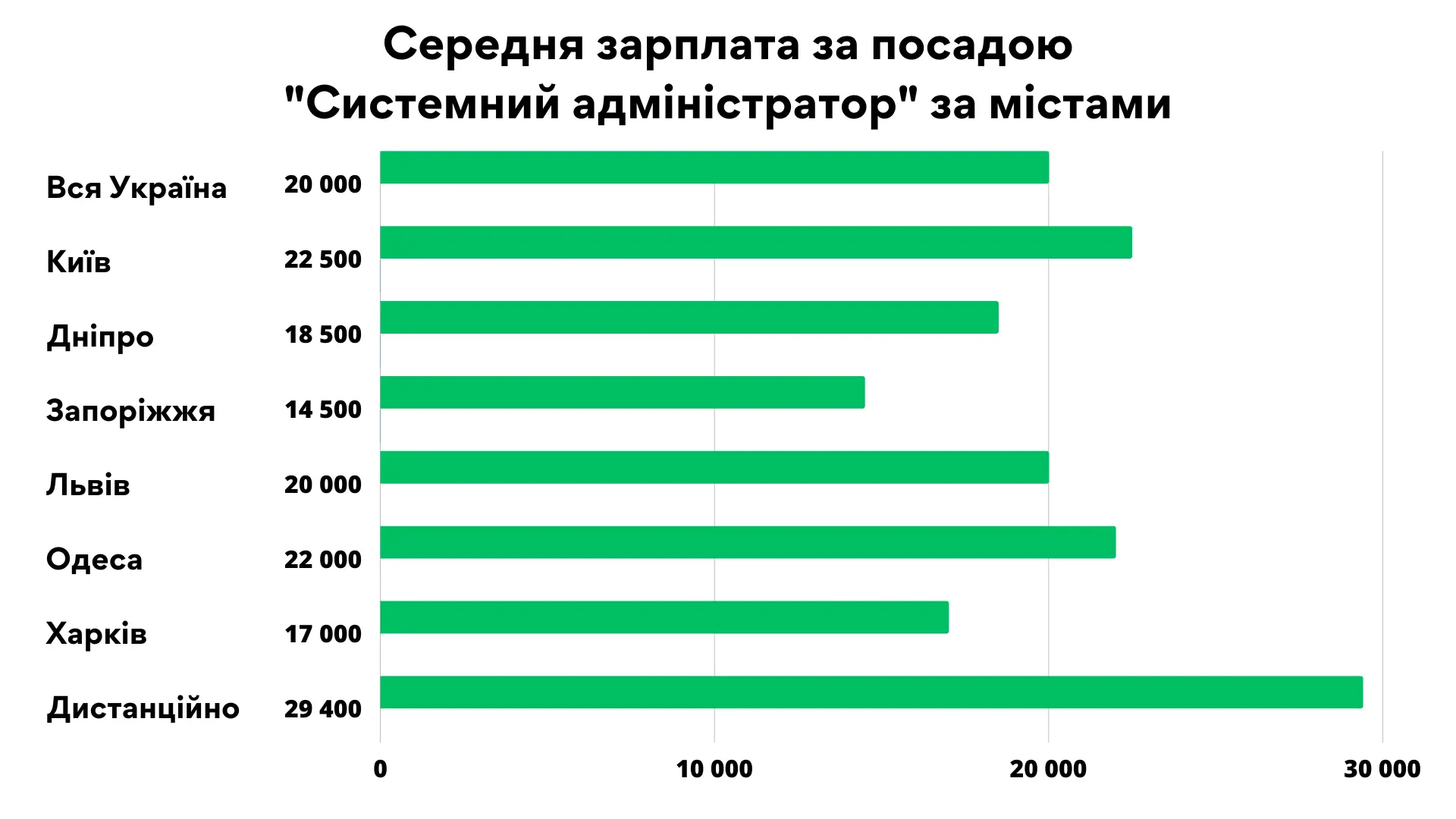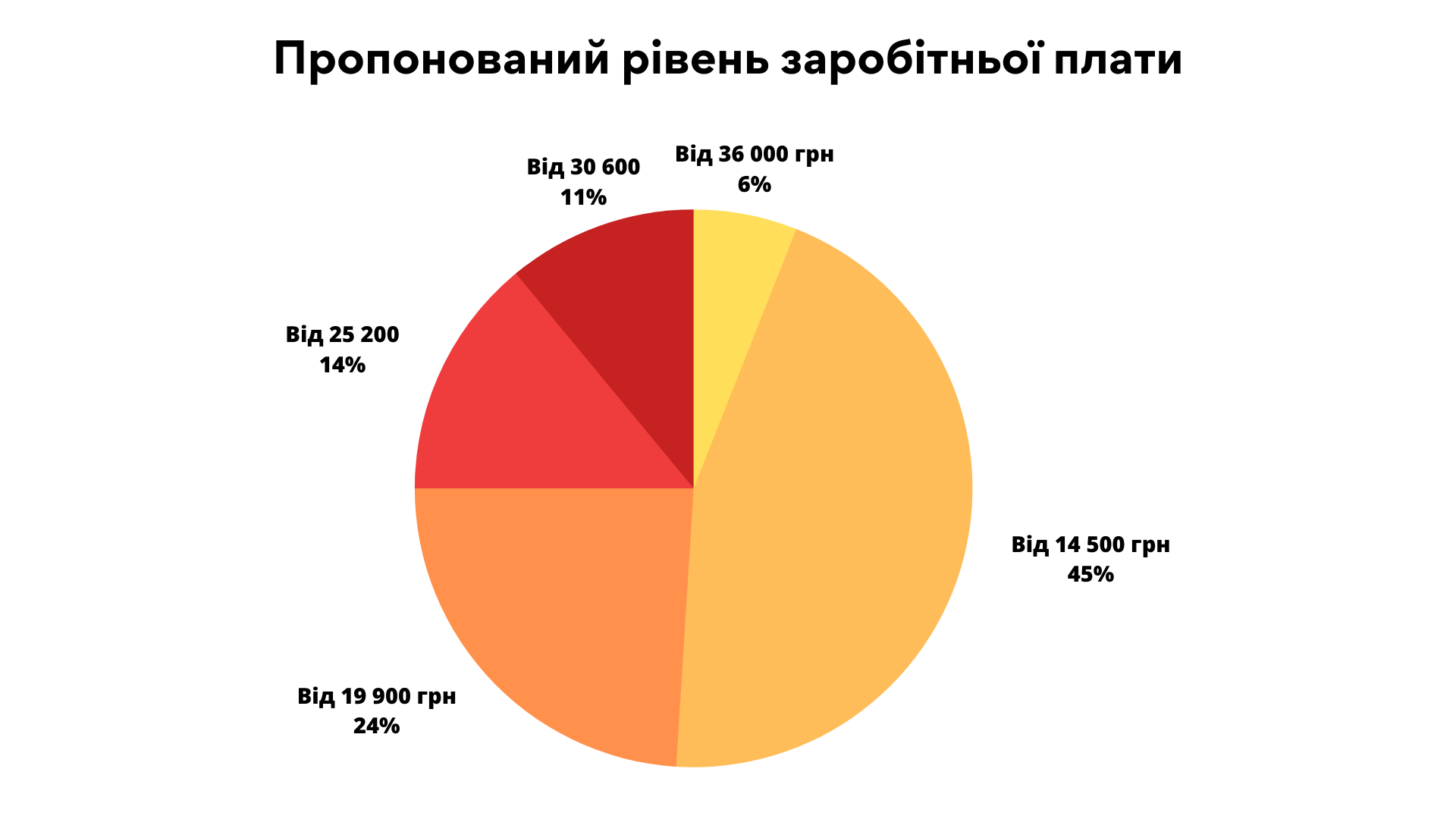
On the day of publication of this article, the last Friday of July, the world celebrates System Administrator Day. This is an extremely versatile specialty, without which the digital technology industry could not exist. Sysadmins adjust the operation of computers, servers and networks, thanks to them you can use our web servers, access the Internet or work on a computer in the office. Among Cityhost.ua employees, of course, there are also system administrators who organize the infrastructure and maintain the uninterrupted operation of all systems. Therefore, today we decided to congratulate them and tell you about the intricacies of this profession.
Many people associate the profession of system administrator with a person who is only needed to install Windows and configure programs. Such stereotypical thinking should be left in the past, because a modern sysadmin is able to configure, maintain and improve the largest IT infrastructures. The demand for sysadmins is growing every year, there are much more vacancies for them than for designers and testers, and professionals are ready to pay 30,000-50,000 hryvnias per month.

The main duties of a system administrator
A system administrator is a specialist who creates, maintains and improves the company's internal computer network. He is responsible for the stable functioning of the IT infrastructure, accordingly, monitors the system, supports servers, resolves the issues of current employees and prepares conditions for new employees, deals with data protection if the company does not have a cyber security specialist. And, of course, the sysadmin detects and fixes problems with hardware, software, and the network. For example, this is what part of the sysadmin job description looks like:

For a better understanding of the profession, let's analyze what a system administrator does in modern companies:
arranges workplaces for employees, installing and configuring the OS, programs, peripherals, IP telephony;
processes requests from company employees, including troubleshooting software and hardware;
administers data backup systems, i.e. prepares, checks, saves, destroys copies;
implements projects to improve current software and introduce new software;
organizes work on the purchase of new equipment, conducts negotiations with suppliers;
protects the company's IT infrastructure from hacking and viruses, supporting information security.
The responsibilities of a system administrator described above give a general idea of the profession, and specific tasks depend on the size and scope of the company, experience and skills of the specialist. Small firms prefer a "jack-of-all-trades" who will be fully responsible for the IT infrastructure, will deal with security, manage billing, accounting and traffic control systems. In medium and large companies, there are various specializations of sysadmin, as well as the position of IT manager and IT director.
Read also: What is the difference between a VPN and a proxy server
What are system administrators
The classic path of a sysadmin begins with an IT support specialist who answers employee questions and configures hardware and software. When a person acquires the necessary knowledge and experience, he is transferred to the position of system administrator, who is responsible for the stable functioning of the entire IT infrastructure.
Then in medium and large companies, for example, it can be hosting providers or software developers, the employee is offered to choose a specific specialization. And here it is important to know what types of system administrators there are and what they do:
Enikeus (Enikenian) is a low-ranking specialist who deals with solving simple problems;
The system administrator is an experienced employee who is able to ensure the stable functioning of the IT infrastructure;
Server administrator — deals with the administration of computer networks, including equipment configuration, management of network protocols, network security;
System architect-engineer — is responsible for product implementation, i.e. compiles system requirements, creates visual or functional outlines of programs (web services), hires and manages personnel;
Information security engineer — implements a reliable protection system, analyzes its activity in relation to threats, prevents attempts to penetrate from the outside;
Cloud systems administrator — configures and monitors cloud infrastructure, deploys applications in the cloud, resolves issues related to cloud services.
The development of the sysadmin depends on the employer: some prefer to hire single-users, developing their skills taking into account the specifics of the company, others are looking for experienced system administrators. At the next stage, a specialist becomes a server administrator, an architect, and the most experienced become an IT manager or IT director.
Read also: Server health monitoring, backup and data security - what hosting customers need to know
What knowledge and skills a system administrator needs
A modern sysadmin is a specialist who is responsible for a complex of interconnected information systems and services. He must have organizational skills, effectively manage projects, and set priorities. He must be attentive to details, able to analyze and solve complex issues. Ability to explain complex concepts and solutions to users, collaborate with other team members and vendors is required.
For example, most employers expect such skills from candidates for the position of sysadmin.

A sysadmin, in addition to soft skills ("soft skills" described above), must have hard skills ("hard skills"). Key knowledge and skills of a system administrator include:
operating systems — basic OS concepts, installation, configuration, updating and support of Windows, Linux, MacOS;
network protocols — TCP/IP, DNS, DHCP, VPN, OSI model;
network equipment — configuration and management of routers, switches and firewalls;
databases — management of MySQL, Oracle, Microsoft SQL Server or PostgreSQL;
virtualization platforms — understanding the principles of Hyper-V or VMware;
programming - knowledge of PowerShell, Python and Bash is a huge plus, as they help create scripts, automate routine tasks.
The above-described knowledge and skills of a system administrator are the basis for performing the main duties and career development, but it is important to take into account the specifics of the company. Hosting companies need a server administrator who knows the basics of dedicated server and VPS server , can install, configure and maintain web server software. In financial companies and banking institutions, the work of an information security engineer who can ensure infrastructure security at all levels is highly valued.
Read also: What is site traffic, how to find it and why to control it
How to become a system administrator
Despite the development of online education and the popularity of online courses, the availability of higher education in the direction of computer systems, information technologies and applied informatics remains a mandatory requirement. There are several best universities in Ukraine for future sysadmins:
Ukrainian Engineering and Pedagogical Academy (UIPA) — Professional education (digital technologies);
Kyiv-Mohyla Academy (KIMA) — "Computer science" with the direction "System analysis;
Kharkiv National University of Radio Electronics (KHNURE): "Information systems and technologies" with the profile "Administration of computer systems and networks";
Ivan Franko National University of Lviv (LNU) — program "System Analysis/System Analysis and Management. Intelligent data analysis" (code 124) at the Faculty of Applied Mathematics and Informatics;
Poltava National Technical University. Yu. Kondratyuk — Department of "Computer and Information Technologies and Systems" with the direction "Computer Sciences" (code 122).
To improve acquired knowledge and skills, it is recommended to regularly take specialized courses. The best system administrator courses include:
IT Capital — training programs for Windows Server, Linux, FreeBSD, Unix, as well as computer repair;
Personnel of the business world - the "System Administration" course is held online or offline (for residents of Mykolaiv), lasts 1-3 months, depending on the preparation;
IT School Hillel — a wide range of training programs, including courses in Linux System Administration, Windows System Administration, Network Administration;
ITStep Academy — various educational programs, including System Administration (Linux/Windows) and Network Administration;
Udemy is the best online Linux course "Complete Linux Training Course to Get Your Dream IT Job 2023" is in English, there are Ukrainian subtitles.
Given the importance of the higher education requirement, it makes sense to start with a university degree and then take offline or online courses to build on the skills you've already acquired. In addition, specialized training programs provide an opportunity to develop in a specific direction, for example, to become a security specialist, server administrator, IT architect.
How popular is the system administrator profession?
System administrators play an important role in maintaining and servicing computer systems and networks, making them an integral part of an organization's IT infrastructure. In a company with a large number of employees, hardware or software constantly breaks down, you need to prepare a solid foundation for the launch of a new product, organize data work, improve software.
On the Ukrainian job search sites Work, Rabota, GRC, Jobs, an average of 300-400 vacancies are available for the search "sysadmin", "system administrator", "system administrator". The system administrator profession is less popular than the developer (700-800 vacancies). However, in Ukraine, companies are looking for sysadmins more often than web designers (80-100 vacancies), testers (60-80) and IT analysts (90).

The average salary of a system administrator is UAH 20,000. At this level, you need to have the above-mentioned skills and knowledge, work experience of 2 years or more. They are willing to pay an assistant from 6,000 hryvnias, and some companies - 10,000 - 15,000 hryvnias, depending on specific tasks. The salary of an experienced specialist is 30,000 — 45,000 hryvnias. The more experience and knowledge, the higher the chances to move in another direction, for example, to become a software architect with a salary of 70,000 hryvnias.

The system administrator profession is an opportunity to dive headlong into the world of IT, provide yourself with interesting projects and a decent salary. Yes, the salary of a sysadmin is inferior to the remuneration of developers, but the acquired knowledge helps to become a DevOps or SRE engineer, a software architect, who receive from 100,000 hryvnias per month.
Many remain in the position of system administrator, but significantly increase the salary level. In addition, you can work remotely for foreign companies. The main thing is to constantly develop, learn new tools, because it makes it possible to automate work, that is, to do less and earn more!








